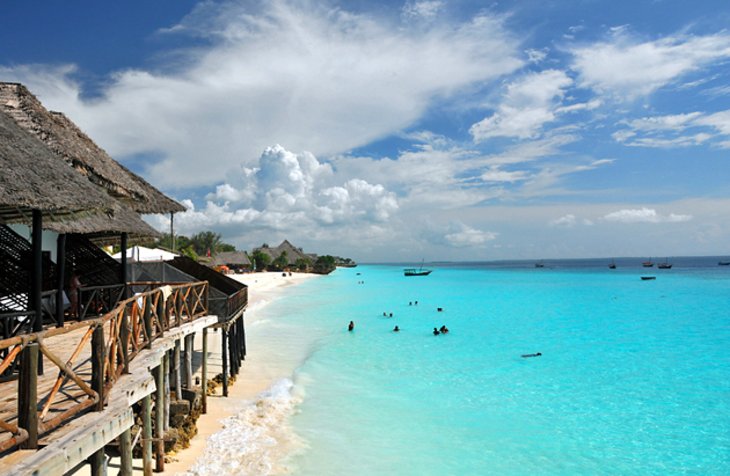…as a Segment of Broader endeavors to Improve Tourism Tanzania Slates to Inaugurate Cable Transportation in Six Regions by way to Ameliorate Commuting
By Abdul Rahman Bangura-

Zanzibar beach, Tanzania
Photo Credit: Planetware
NEW AFRICA BUSINESS NEWS (NABN) Freetown, Sierra Leone- Cable transport involves transporting people in motor-less, engine-less vehicles that are propelled by a steel cable, commonly known as ropeway.
Cable transport is a broad class of transport modes that have cables. They transport passengers and goods, often in vehicles called cable cars. The cable may be driven or passive, and items may be moved by pulling, sliding, sailing, or by drives within the object being moved on cableways.
Director General of LATRA – Habibu Suluo notified Tanzanians lately that they have accomplished a survey to recognize areas that are possible for the installation of cable transport systems.
“After conducting a study, we identified Mbeya, Iringa, Tanga, Morogoro, Arusha and Kilimanjaro as having a great opportunity to introduce cable transport,” he explained.
This pursues a June 2023 directive by Works and Transport Minister – Makame Mbarawa, who authorized LATRA to execute their responsibilities to entice investors in cable transport.
Embarking the new LATRA Board of Directors, Mbarawa exhorted land transport regulator to find compromises to evaluate cable transport as a means of investment opportunity…”Investors are already interested to invest in the sector. You expect to be effective on matters that expect you to work on,” Mbarawa said in June. And during the interview, Suluo asserted the LATRA Board of Directors has ratified the feasibility study and they delivered it to the Ministry of Works and Transport for more action.
Especially, the submission paves the way for further information with Tanzania’s diplomats in China, Brazil and South Africa so that Tanzanian experts can go and learn from them. He told the business alternative for cable transport is there primarily in tourist areas. There is one person in Mtoo Wa Mbu doing tourism by providing cable services to various tourists, though it is not conventional.
“So far, we have not engaged potential stakeholders, there is an appetite for investors to invest in cable transport. That is why, we (Latra) want to come up with a regulation to successfully implement cable transport,” Suluo said.
LATRA’s Manager Research and Land Transport Statistics, Ms. Asteria Mushi, said the denizen that they were presently striving funds to get a contractor to conduct a thorough research on cable transport. The contractor will be competent to have enlightening research and bring out the advantages and disadvantages of cable transport.
“We need a lot of dollars to implement the second research because the one we did is preliminary research. We want to satisfy ourselves, to see if there are any effects on the environment and other areas,” she mumbled.
In March of 2022, the then Minister for Natural Resources and Tourism, Dr. Damas Ndumbaro (who has since been shifted to the Constitutional and Legal Affairs docket), renewed the matter and provoked a fresh round of protests when he said that it was a well-intentioned decision by the administration to initiate a cable car to cater for the aged and tourists with disabilities and to captivate more visitors.
For New Africa Business News (NABN) Abdul Rahman Bangura Reports, Africa Correspondent
